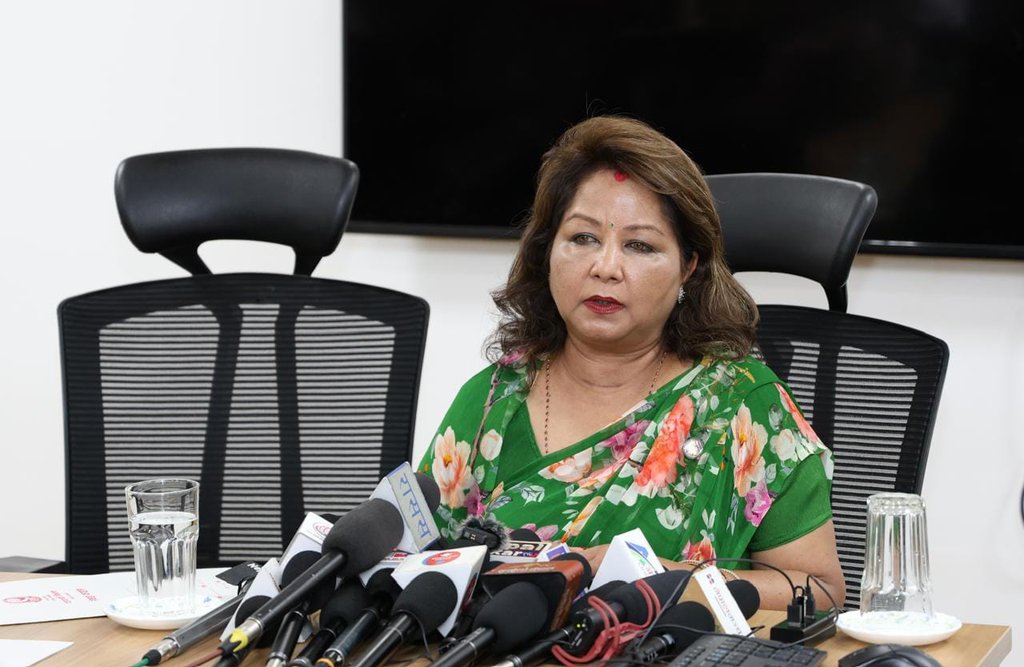Foreign Minister calls for feminism-oriented foreign policy to promote equality

Kathmandu: Minister for Foreign Affairs Dr. Arzu Rana Deuba has urged the global adoption of a feminism-oriented foreign policy to foster equality and protect the rights of marginalized groups, particularly the LGBTQI+ community.
In a statement issued by the Ministry of Foreign Affairs (MoFA) on Wednesday, Dr. Rana highlighted the potential of such a policy to drive inclusivity, justice, and global reconciliation. She made the remarks during her address at the Equal Rights Coalition Conference in Berlin, Germany, on Tuesday.
“A feminist foreign policy confronts patriarchal systems of power and exclusion,” Dr. Rana explained. “It prioritizes inclusion, empathy, and equality, advancing human security and ensuring that diplomatic relations are grounded in fairness for all.”
Dr. Rana framed feminist foreign policy as a tool for reconciliation and inclusivity, emphasizing its role in defending the rights of sexual and gender minorities (SGM). She called for a renewed global commitment to feminist policies that respect and protect the sensitivities of these communities, advocating for a world rooted in justice and equality.
The Minister also stressed that meaningful change cannot be achieved through surface-level reforms. “It’s essential that policies embrace true equality, which can help shift societal values and norms,” she stated.
In addition, Dr. Rana praised Nepal’s efforts in championing SGM rights, noting the country’s role as a leader in South Asia. Reflecting on her participation in a panel titled Pathways to LGBTQI+ Inclusion in National Laws and Policies, she highlighted Nepal’s trailblazing progress, especially following the 2007 Supreme Court ruling that legally recognized the SGM community and ordered the revision of discriminatory laws. This decision made Nepal the first country in South Asia to legalize same-sex marriage.
Through her remarks at the conference, Dr. Rana underscored Nepal’s position as a regional leader in LGBTQI+ rights and reiterated the importance of international collaboration to ensure the protection and inclusion of marginalized groups worldwide.

